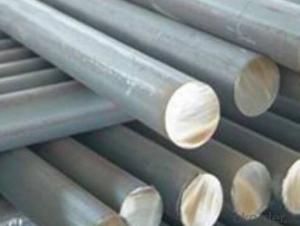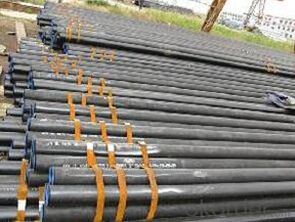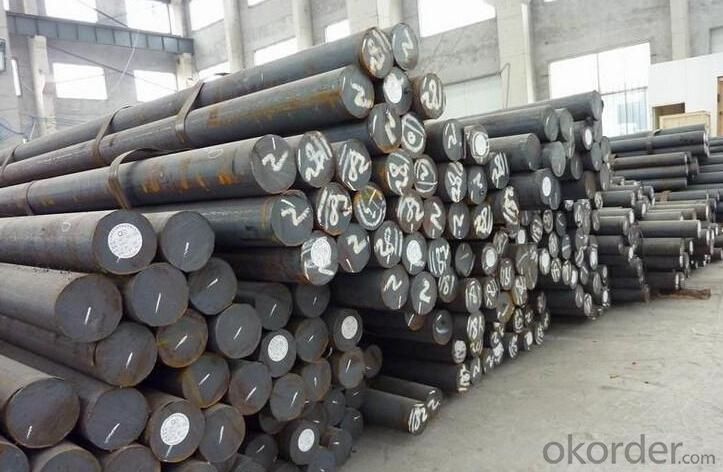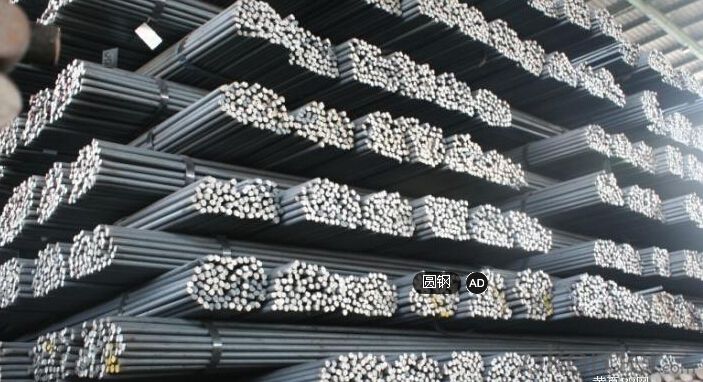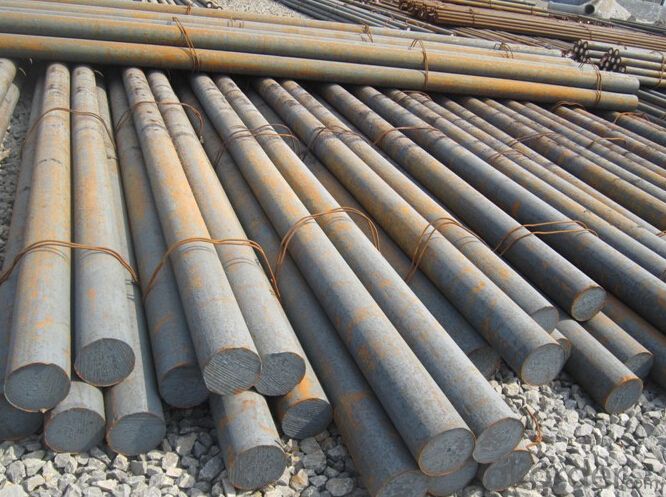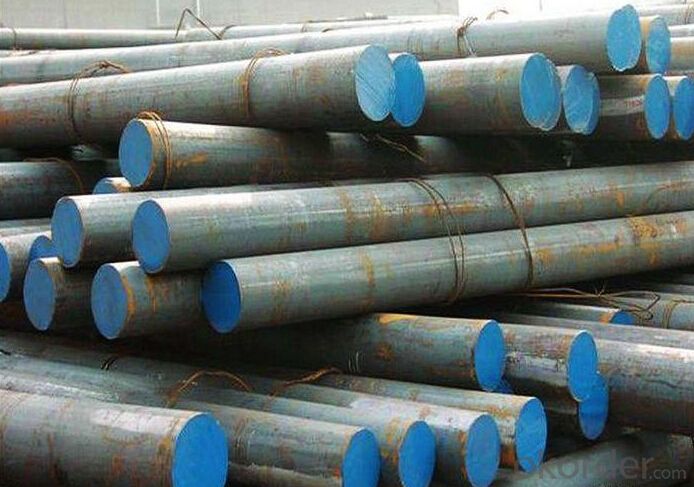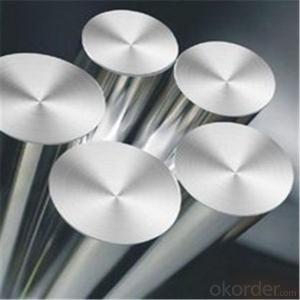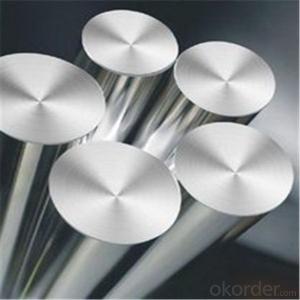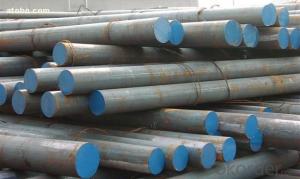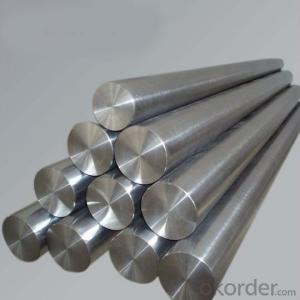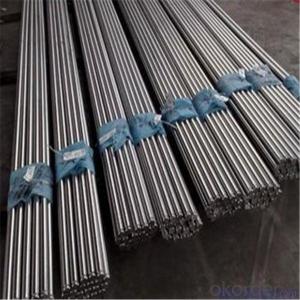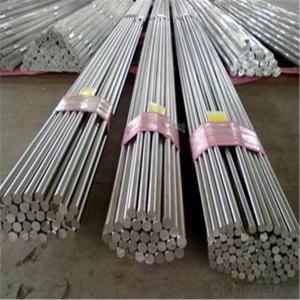Grade SKS31 Mold Steel Round Bar Price Per Ton
- Loading Port:
- Shanghai
- Payment Terms:
- TT OR LC
- Min Order Qty:
- 3 m.t.
- Supply Capability:
- 100000 m.t./month
OKorder Service Pledge
OKorder Financial Service
You Might Also Like
Specification
Grade SKS31 Mold Steel Round Bar Price Per Ton
Details Information of Grade SKS31 Mold Steel Round Bar Price Per Ton
| Name | Grade SKS31 Mold Steel Round Bar |
| Shape | Round Bar/Square Bar/Flat Bar/Plate/Wire |
| Standard | GB/ASTM/SAE/AISI/DIN/JIS/EN/BS |
| Surface Treatment: | Black/Peeling/Polished/Machined |
| Delivery Condition: | Hot Rolled or Forged/Peeled or Black Surface |
| Test | SGS/UT 100% Elements Testing |
| Certificate: | ISO/Mill Certificate |
| Service: | 24 hours online service / |
| more than 20 years trading and manufacture | |
| Quality Assurance: | the third party inspection, such as SGS, BV, TUV…etc. is acceptable |
| Packaging Details: | Seaworthy Packaging or as per customer's packing instruction |
| Carbon structure round bar | Q195 Q235A Q235B 10# 20#-55# S45CB |
| Low alloy high strength round bar | Q345A/Q345C/Q345D Q345B Q345E |
| Alloy structure round bar | SAE51B20 20Cr 40Cr 40CrV 20CrMo/30CrMo/35CrMo/42CrMo 20CrMoA/30CrMoA/35CrMoA/42CrMoA/42Cr ML20CrMo/ML30CrMo/ML35CrMo/ML42CrMo B7/SCM435-440 20MnTiB 20CrMnMo 20CrMoH 42CrMoH 40MnB/40MnBH 30Mn2-40Mn2 27SiMn 50CrVA 30CrMnTi |
| Pinion steel | 20CrMnTi 20CrMnTiH 20CrMnTiHCS/20CrMnTiHLD Q20CrMnTi-1/Q20CrMnTi-2 |
| Sucker rod | 20-35CrMoA |
| Free-cutting steel | GT1215S |
| Spring steel | 60Si2MnA 65Mn |
| Ball bearing steel | GCr15 |
Chemical Composition of Grade SKS31 Mold Steel Round Bar Price Per Ton
| Equivalent Grade | Chemical Composition(%) | |||||||
| C | Si | Mn | Cr | Mo | P | S | ||
| China/ GB | CrWMn | 0.9~1.05 | ≤0.4 | 0.8~1.1 | 0.9~1.2 | 1.2~1.6 | ≤0.03 | ≤0.03 |
| Germany/DIN | 1.2419 | 1~1.1 | 0.1~0.4 | 0.8~1.1 | 0.15~0.25 | ≤0.03 | ≤0.03 | |
| Japan/JIS | SKS31 | 0.95~1.05 | ≤0.35 | 0.9~1.2 | 0.8~1.2 | |||
| Available Size | ||
| Rolled round bar | φ65-120mm × L | |
| Forged round bar | φ130-290mm × L | |
| Heat Treatment | ||
| Item | Temperature ℃ | Hardness |
| Anneal | 770-790 | 207-255HB |
| Quenching | 820-840 | 62-65HRC |
| Tempering | 200-280 | 55-62HRC |
Company Introduction of Grade SKS31 Mold Steel Round Bar Price Per Ton
CNBM International Corporation is the most import and export platform of CNBM group(China National Building Material Group Corporation) ,which is a state-owned enterprise, ranked in 270th of Fortune Global 500 in 2015.
With its advantages, CNBM International are mainly concentrate on Cement, Glass, Iron and Steel, Ceramics industries and devotes herself for supplying high quality series of refractories as well as technical consultancies and logistics solution.
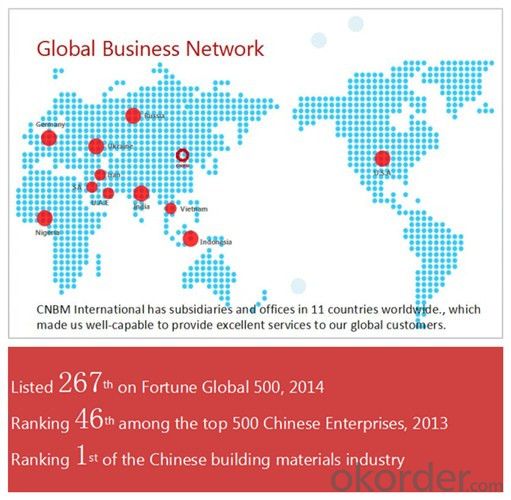
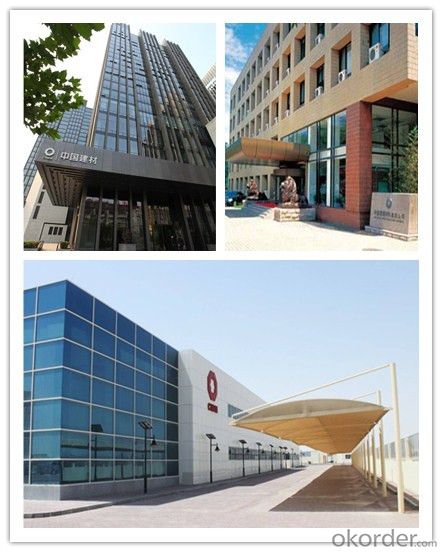
Certificates of Grade SKS31 Mold Steel Round Bar Price Per Ton
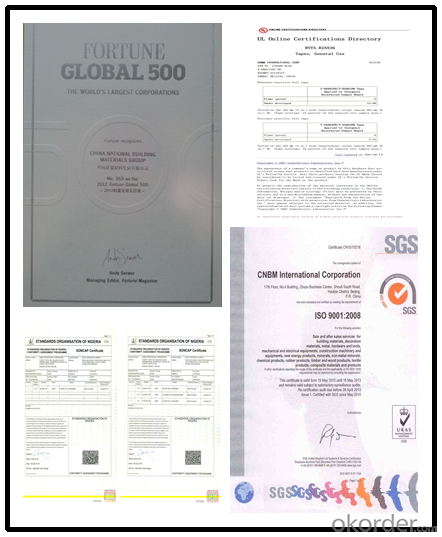
Packaging & Delivery of Grade SKS31 Mold Steel Round Bar Price Per Ton
Packaging Detail | Sea worthy packing /as per customer's packing instruction |
Delivery Detail | 15 ~ 40 days after receiving the deposit |
Products show of Grade SKS31 Mold Steel Round Bar Price Per Ton
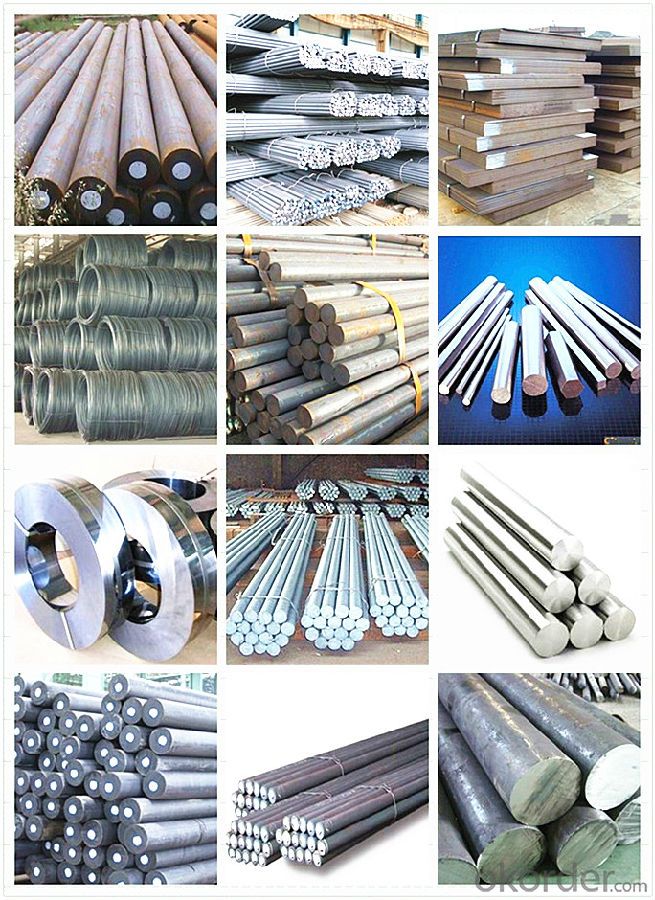
FAQ
Are you a trading company or manufacturer? | Manufacturer |
What’s the MOQ? | 3 metric ton |
What’s your delivery time? | 15-35 days after downpayment received |
Do you Accept OEM service? | Yes |
what’s your delivery terms? | FOB/CFR/CIF |
What's the Payment Terms? | 30% as deposit,70% before shipment by T/T |
Western Union acceptable for small amount. | |
L/C acceptable for large amount. | |
Scrow ,Paybal,Alipay are also ok | |
Why choose us? | Chose happens because of quality, then price, We can give you both. Additionally, we can also offer professional products inquiry, products knowledge train (for agents), smooth goods delivery, excellent customer solution proposals. |
What's your available port of Shipment? | Main Port, China |
What’s your featured services? | Our service formula: good quality+ good price+ good service=customer's trust
|
Where are your Market? | Covering more than 160 countries in the world |
- Q: How does precipitation-hardening steel achieve high strength through heat treatment?
- Precipitation-hardening steel achieves high strength through heat treatment by a process called aging. This involves heating the steel to a specific temperature and holding it there for a certain period of time, followed by rapid cooling. During this process, the alloying elements in the steel form fine particle precipitates, which obstruct the movement of dislocations within the crystal structure. These precipitates act as barriers that hinder the deformation of the material, resulting in increased strength.
- Q: How does special steel perform under high temperatures?
- Special steel is specifically designed to perform exceptionally well under high temperatures. It exhibits excellent strength, hardness, and resistance to deformation, even when exposed to extreme heat. Additionally, special steel demonstrates remarkable resistance to oxidation and corrosion, making it highly suitable for applications that involve high temperatures, such as in the aerospace, automotive, and power generation industries.
- Q: What are the main characteristics of electrical steel forgings?
- The main characteristics of electrical steel forgings include high magnetic permeability, low core loss, and high electrical resistivity. These properties make electrical steel forgings ideal for applications in electrical transformers, motors, and generators, where efficient magnetic performance and minimal energy loss are crucial. Additionally, electrical steel forgings are known for their excellent mechanical strength, thermal stability, and resistance to corrosion, making them durable and reliable in demanding environments.
- Q: How does special steel contribute to the aerospace landing gear industry?
- Special steel plays a vital role in the aerospace landing gear industry by providing the necessary strength, durability, and resistance to extreme conditions. It enables the landing gear to withstand heavy loads, high temperatures, and corrosive environments, ensuring the safe landing and takeoff of aircraft. Additionally, special steel's lightweight properties help reduce the overall weight of the landing gear, resulting in improved fuel efficiency and increased payload capacity.
- Q: How does special steel contribute to the agricultural industry?
- In the agricultural industry, special steel plays a crucial role in providing strong and high-performing parts for a range of farming equipment. Its unique characteristics, including strength, toughness, and resistance to corrosion, make it perfect for enduring the challenging conditions encountered in agricultural operations. One important use of special steel in agriculture is in the production of tillage tools like plows, harrows, and cultivators. These tools experience intense forces and abrasion while breaking the soil, and special steel ensures their durability and effectiveness even after extended periods of use. The steel's toughness and resistance to wear reduce the need for frequent replacements, improving the overall productivity and cost-effectiveness of agricultural activities. Moreover, special steel is extensively utilized in the manufacturing of harvesting machinery such as combine harvesters, grain conveyors, and crop processing equipment. These machines require parts that can withstand the continuous stress and impact of harvesting and processing operations. Special steel's exceptional strength and ability to resist fatigue allow these machines to handle heavy loads and endure prolonged usage without compromising performance or safety. Additionally, special steel finds application in constructing irrigation systems, storage tanks, and other necessary infrastructure for efficient water management in agriculture. The steel's resistance to corrosion and durability ensure that these structures can endure the challenging conditions of moisture and chemicals present in agricultural environments, guaranteeing their long-lasting functionality. All in all, special steel significantly contributes to the agricultural industry by providing long-lasting and dependable parts for various farming equipment and infrastructure. Its properties enhance the efficiency, productivity, and longevity of agricultural machinery and structures, ultimately benefiting farmers and promoting the overall sustainability of agricultural practices.
- Q: What are the applications of special steel in the automotive manufacturing process?
- Special steel is used in various applications within the automotive manufacturing process. It is commonly used for the production of engine components, such as crankshafts, camshafts, and connecting rods, due to its high strength, durability, and heat resistance. Special steel is also utilized in the manufacturing of suspension systems, steering components, and transmission parts, as it provides excellent fatigue resistance and wear properties. Additionally, special steel is employed for producing safety-related components like seat belt buckles and structural reinforcements, ensuring the overall safety and reliability of vehicles.
- Q: What are the varieties of special steel
- China and Japan, the definition of special steel is relatively close, the special steel into high quality carbon steel, alloy steel, high alloy steel (alloy element is greater than 10%) three categories
- Q: What are the different surface treatments for special steel?
- For special steel, there exist various surface treatments that serve distinct purposes and offer unique benefits. Some commonly employed surface treatments include: 1. Galvanization, which entails coating the steel with a layer of zinc, providing exceptional corrosion resistance. Galvanization proves popular for outdoor applications exposed to moisture and harsh environmental conditions. 2. Powder coating, involving the application of a dry powder to the steel surface, which is then heated and cured to form a durable and protective coating. This treatment offers excellent resistance against corrosion, chemicals, and UV rays, making it ideal for automotive parts, appliances, and outdoor furniture. 3. Nitriding, a surface hardening treatment that diffuses nitrogen into the steel surface. Nitriding significantly enhances surface hardness, wear resistance, and fatigue strength. It finds common use in high-performance components like gears, crankshafts, and injection molding screws. 4. Electroplating, where a layer of metal such as chromium, nickel, or gold is deposited onto the steel surface through an electrochemical process. This treatment improves appearance, corrosion resistance, and wear resistance. Electroplating is often employed for decorative purposes or to enhance component performance in various industries. 5. Passivation, a chemical treatment that eliminates iron contaminants from the steel surface, creating a passive oxide layer. This layer acts as a barrier against corrosion, enhancing resistance to rust and other forms of degradation. Passivation is commonly used for stainless steel components in industries like food processing, pharmaceuticals, and medical devices. 6. Carbonitriding, a surface treatment that introduces carbon and nitrogen into the steel surface at high temperatures. This process forms a hardened case, improving wear resistance and fatigue strength. Carbonitriding finds frequent application in high-stress components such as gears, crankshafts, and camshafts. These examples represent just a fraction of the available surface treatments for special steel. The choice of treatment depends on factors like desired properties, application requirements, and budget constraints. Consulting experts or manufacturers is crucial for determining the most suitable surface treatment for specific steel applications.
- Q: What are the different construction grades of special steel?
- In various industries and applications, special steel with different construction grades is utilized. These grades are specifically engineered to offer superior strength, durability, and resistance to corrosion and other environmental factors. Some well-known construction grades of special steel include: 1. Mild Steel: This grade is widely used in construction and is considered the most basic. It has a low carbon content, making it easy to work with and weld. Mild steel is suitable for applications that require moderate strength and durability. 2. High-Strength Low-Alloy (HSLA) Steel: HSLA steel is a type of special steel that contains small amounts of alloying elements like copper, nickel, and vanadium. This grade provides higher strength and improved formability compared to mild steel. It is commonly used in structural applications where a higher strength-to-weight ratio is needed. 3. Weathering Steel: Also referred to as Cor-Ten steel, weathering steel is a special grade that develops a protective layer of rust when exposed to the elements. This layer acts as a barrier against further corrosion, making it ideal for outdoor structures. Weathering steel is commonly used in bridges, buildings, and other architectural applications. 4. Stainless Steel: Stainless steel is a corrosion-resistant alloy that contains at least 10.5% chromium. It offers exceptional resistance to corrosion, heat, and chemicals, making it suitable for a wide range of construction applications. Stainless steel is commonly used in building facades, roofing, and structural components. 5. Tool Steel: Tool steel is a special grade specifically designed for manufacturing tools, dies, and molds. It possesses high hardness, wear resistance, and toughness properties, making it suitable for applications that involve cutting, shaping, and forming materials. 6. Alloy Steel: Alloy steel is a special grade that incorporates additional alloying elements like manganese, silicon, nickel, and chromium. This grade provides enhanced strength, toughness, and wear resistance compared to carbon steel. Alloy steel finds common usage in machinery, equipment, and components subjected to high stress and wear. These examples highlight the various construction grades of special steel. Each grade possesses unique properties and is chosen based on the specific requirements of the application.
- Q: What are the different surface coatings applied to special steel?
- To enhance the performance and protect special steel from various environmental factors, there exist several surface coatings that can be applied. Some common options are as follows: 1. Galvanization: By applying a layer of zinc to the steel surface, galvanization provides exceptional corrosion resistance and prevents rusting. 2. Powder coating: This technique involves electrostatically spraying a dry powder onto the steel surface, which is then cured under heat. The result is a durable, decorative coating that offers excellent resistance to impact, abrasion, and corrosion. 3. Paint coating: Steel can be coated with a variety of paints, including epoxy, acrylic, polyurethane, and enamel. These coatings not only enhance the steel's appearance but also protect against corrosion and weathering. 4. Chrome plating: This process electroplates a thin layer of chromium onto the steel surface, providing excellent resistance to corrosion, wear, and abrasion. It is suitable for harsh environments. 5. Ceramic coating: Ceramic coatings can be applied using thermal spraying or plasma spraying methods. They offer high-temperature resistance, abrasion resistance, and excellent thermal insulation. As a result, they are used in industries such as aerospace and automotive. 6. Anodizing: Though commonly used for aluminum, anodizing can also be applied to certain special steel types. It involves creating an oxide layer on the steel surface through an electrochemical process. Anodizing enhances corrosion resistance and can be used for decorative purposes. These examples represent just a few of the available surface coatings for special steel. The selection of a coating depends on specific application requirements, such as corrosion resistance, wear resistance, temperature resistance, and aesthetic appearance.
Send your message to us
Grade SKS31 Mold Steel Round Bar Price Per Ton
- Loading Port:
- Shanghai
- Payment Terms:
- TT OR LC
- Min Order Qty:
- 3 m.t.
- Supply Capability:
- 100000 m.t./month
OKorder Service Pledge
OKorder Financial Service
Similar products
Hot products
Hot Searches
Related keywords
